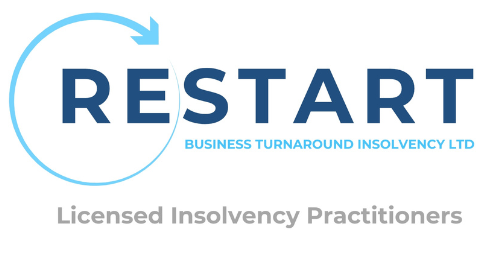
Should My Business Borrow Money?
Whatever your reason for borrowing money for your business, we understand that it can be complex and risky. In this article, our experts outline the things you need to consider before taking out a business loan, as well as discussing the risks associated with it. We also talk you through some of the more common types of business loans to help you make an informed decision.
So, should your business borrow money? Borrowing money for your business can be a great option to help grow the company or resolve short-term problems. But, it’s important that you are realistic about the opportunity, have solid growth plans, and consider all scenarios. It’s also crucial that you choose the right type of loan for your requirements and weigh up the pros and cons.
Read on to learn more about borrowing money for business, the types of loans available, and the drawbacks of taking out a business loan.
Is it a Good Idea to Borrow Money for Business?
Knowing when, or not to, borrow money to grow your business is not an easy decision to make. It can take years to get to a point where your business is sustainable and profitable, but as your business grows you may find yourself facing a new set of challenges that require investment.
Below we list some of the most important considerations when deciding whether or not to take out a business loan or seek external financing.
Things to Consider When Borrowing Money for Business
If you’re thinking of taking your business to the next level, or are thinking about a specific opportunity that requires financing, consider the following factors before making a decision.
Is it Realistic?
First things first, it’s important to be realistic about the opportunity. Be sure that your projections are underpinned by predictable and scalable pipelines. Do your research, understand your competition and be sure that your plan meets the needs of both your business and your target market.
Do You Have a Realistic Growth Plan and Projections?
Part of being realistic about an opportunity is having a realistic growth plan. It’s critical that you work out how you plan to invest these funds over a period of time so that growth can be achieved.
This includes having a set of cash flow projections that show where and when the funds are being invested. It should also highlight the projected impact on cash flow month to month, and quarter to quarter.
What’s the Worst-Case Scenario?
Finally, you need to model out low, medium and high financial projections to understand the actions your business can take if the anticipated growth doesn’t come to fruition. It is critical that you understand the level of risk you are taking and the worst-case scenario – plan for the unexpected.
Common Reasons to Take Out a Business Loan
Businesses take out loans or seek investment for a wide variety of reasons, but here are a few smart reasons why businesses borrow money.
- To pay start-up costs
- Workflow capital is needed to keep cash flowing
- Investments are used to make more than it costs to borrow
- Borrowing money reduces personal risk
Business Loan Options
Once you’ve determined that a business loan is the right step forward for your business, the next step is to weigh up your options. Here are some of the most common types of business loans.
Unsecured Business Loan | Also known as ‘term loans’. Borrow a lump sum of money and repay it over an agreed period of time. There is no need to put up collateral against term loans as lenders consider a number of factors including business finances and credit rating. Interest on unsecured business loans tends to run higher than on secured loans. |
Secured Business Loan | Secured business loans work in the same way as unsecured loans, however, lenders require businesses to put up an asset as collateral. This will typically be property. Usually, lenders view secured loans as being less risky, therefore may offer a larger sum of money or a longer repayment period. |
Short-Term Business Loan | Short-term business loans are designed to be repaid over a short period of time – often within a few months but up to a couple of years. They are typically used to cover emergencies or immediate costs. With this type of loan, you would need to be very confident that you can repay the money back quickly as interest rates are typically higher than other business loans. |
Working Capital Loans | This is another type of short-term business loan. It is often used to cover gaps in cash flow to allow your business to continue operating as normal. It’s a great short-term option but you need to be sure that you’ll have the funds to repay the loan within a short period of time. |
Invoice Financing | This is a secured business loan where the amount you borrow is based on the value of unpaid invoices. Typically, you can receive between 70-90% of an invoice’s value. |
Asset Financing | This is another type of secured business loan whereby you borrow money against an asset, such as equipment or machinery. This allows you to purchase the equipment you need if you cannot afford to buy it outright. This can work in a number of ways, for example like a lease agreement, where you pay a sum of money each month for a period of time and return the item at the end of the contract. Alternatively, you may spread the cost of the item over a set period. Once all payments have been made, you then own the item. |
Credit Lines | A credit line is a flexible form of business loan that works similar to a credit card. The lender sets a limit and instead of applying for a fixed sum, you can borrow as much or as little as needed, when needed. Lines of credit can be both secured and unsecured, and you only pay interest on the amount you use rather than the entire credit limit. |
Government Loans | There are a number of government business loans available, both nationally and regionally. Learn more and find out which loans your business is eligible for here. |
Disadvantages of Borrowing Money for Business
Borrowing money to support or grow your business offers great potential, but it also comes with great risk. Be sure to consider the disadvantages of borrowing before you make your decision.
- Personal liability – in some cases, you may need to use your own assets or credit history to secure a business loan. If you have any issues paying back your loan, it will impact you personally in this case.
- Loss of assets – if your business loan is secured, you risk losing the assets you used as collateral if you cannot pay back the loan.
- Interest rate fluctuations – depending on the loan in question, you may be at risk of fluctuating interest rates. Be sure to consider fixed-rate loans alongside variable rate loans.
- Loan default – If you struggle to pay back a loan, it may be considered as “defaulting”. This will follow the company and its owners until the debt is cleared and means that they would struggle to secure new financing.
- Too much debt – if a business takes out a new loan before an existing one is paid off, this is an indication that the business is struggling financially and may end up bankrupt.
Insolvency Solutions at Restart BTI
We hope it never comes to pass, but should the worst happen and you find yourself in a situation where you cannot pay off a business loan, Restart BTI are here to help. Our experts will assess your situation and present you with a number of options with your best interest in mind. Learn more about what we do online, from Company Insolvency to Personal Insolvency.

Established in 2018, the directors at Restart BTi have over 50 years of experience to assist companies, business owners and individuals with expert advice and tailored solutions when facing financial difficulties.
